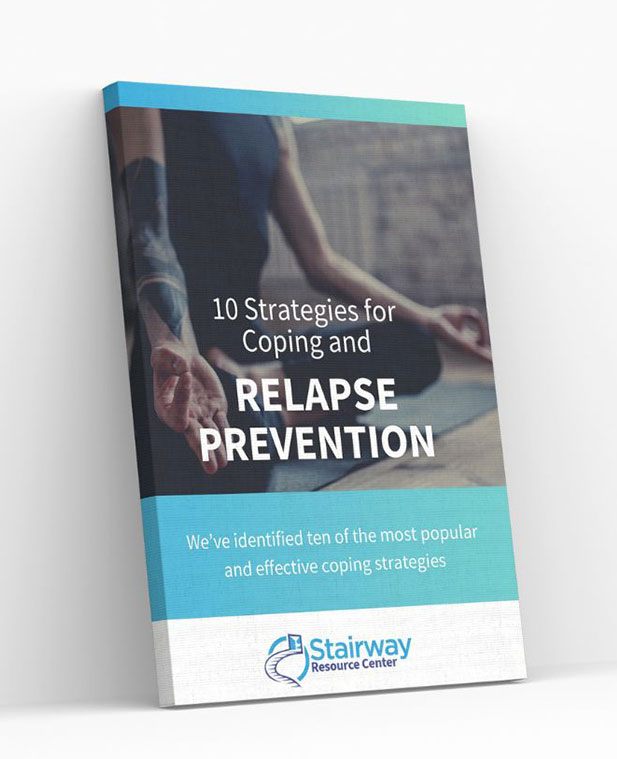Relapse Preventionat Stairway Resource Center
Relapse prevention is an essential part of addiction recovery at Stairway Resource Center in Los Angeles, California. We understand that recovery from substance use disorder (SUD) is a journey that extends beyond initial treatment, and we’re here to support you every step of the way. Relapse, though common, doesn’t mean failure; rather, it’s a signal that further growth and new strategies may be needed. Our relapse prevention program offers compassionate support and effective strategies to help individuals build resilience and maintain their sobriety.
Understanding RelapseSigns and Triggers
Relapse often starts with emotional and psychological shifts. Here are some common signs to watch for:

Recognizing Triggers and High-Risk Situations
Triggers are the specific situations, environments, or emotional states that make relapse more likely. Understanding your triggers can empower you to plan proactively. Common triggers include:
At Stairway Resource Center in Los Angeles, our relapse prevention program is designed to help you identify these triggers and develop practical strategies for managing them.
Effective Relapse Prevention Strategies
At Stairway Resource Center, we believe that relapse prevention requires a combination of self-awareness, skill-building, and a strong support system. Our program incorporates various evidence-based approaches to build these essential elements into your daily life.
Developing a Personalized Relapse Prevention Plan
Each individual’s recovery journey is unique, which is why our relapse prevention plans are personalized. Working closely with a therapist, you’ll identify your specific signs of relapse, triggers, and strategies for managing them.
Coping Skills for Stress Management
Stress management is vital to prevent relapse. Effective coping skills help mitigate the impact of stressful situations on mental health and substance use disorder recovery.
Utilizing Support Networks and Peer Support
A strong support network provides motivation, accountability, and a sense of connection. Peer support, including group psychotherapy or 12-Step meetings, fosters community and reduces isolation.

Therapeutic Approaches to Relapse Prevention
Therapy is a cornerstone of relapse prevention, offering a structured environment for learning practical skills and coping strategies.
Cognitive Behavioral Therapy (CBT) Techniques
CBT is highly effective for relapse prevention as it addresses the underlying thought patterns that can lead to substance abuse. During CBT sessions, patients learn to:
Dialectical Behavior Therapy (DBT) for Emotional Regulation
DBT is especially beneficial for individuals who struggle with intense emotions. This therapy focuses on skills like:
Family TherapyInvolving Loved Ones in Recovery
Family therapy is an integral part of our relapse prevention program. Addiction impacts not only the individual but also their loved ones. Involving family members in therapy sessions can help:

Ongoing Support and Aftercare Programs
Recovery doesn’t end after residential treatment or outpatient care. Our aftercare programs provide continuous support, helping individuals build lasting sobriety and resilience.
The Importance of Aftercare in Addiction and Dual Diagnosis Recovery
Aftercare programs offer a safety net, reinforcing the skills learned during treatment. Stairway Resource Center offers tailored aftercare for individuals managing both SUD and mental health conditions.
Resources for Continued Growth and Sobriety
Long-term recovery requires continuous growth. We connect our patients with resources that support sobriety and enhance life skills.
For those seeking effective relapse prevention in Los Angeles, Stairway Resource Center offers compassionate, evidence-based care. Our experienced team is dedicated to building resilience and supporting lasting recovery. Contact Stairway Resource Center today to learn more about our individualized programs and take the next step toward a healthier, sober life.
Get Your Free Guide:“10 Strategies for Coping and Relapse Prevention”
We’ve identified ten of the most popular and effective coping strategies.

Ready for Relapse Prevention?
Contact Us Today Your treatment doesn’t end when the outpatient program is over.
Stairway Resource Center is dedicated to providing an aftercare plan that can help you locate healthcare providers, identify potential support groups, establish a physical fitness routine, locate community resources, find online and print resources, and access official aftercare services. If you or someone you care about requires relapse prevention, call Stairway Resource Center today and learn more about our Community Support and Sober Living services.




